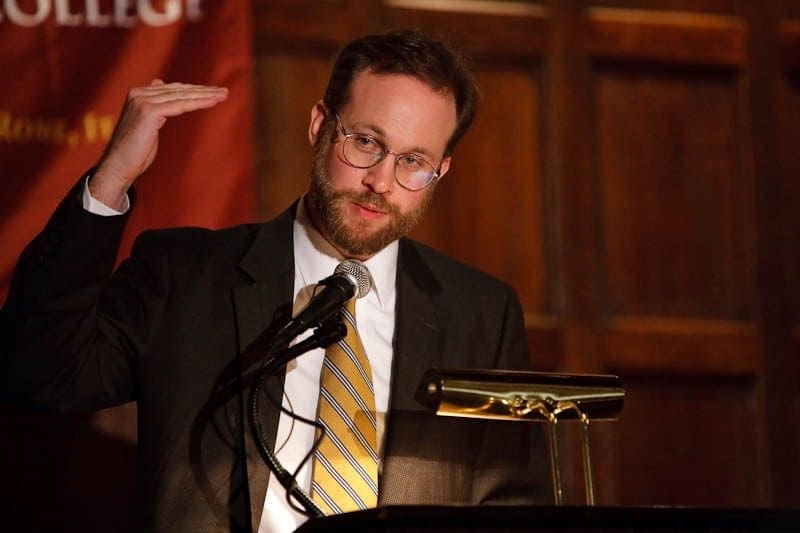
Q&A: Dr. William Fahey
Q&A: Dr. William Fahey, President of The Thomas More College of Liberal Arts, pursues master’s in Wildlife Conservation and Management with Unity College Distance Education
Table of Contents
ToggleQ: Why did you choose to pursue a master’s degree with Unity College Distance Education?
A: I chose this program because I wanted to be challenged with something that had a serious field dimension and firm practical goals. As you know, my background is the classics and humanities. I have come to the natural sciences in the middle of life. Reading up on the theory and generalities of a discipline is something I could have done on my own. I wanted something challenging and concrete, and especially something that would help to prepare me to teach my Natural History students at a higher level.
Q: As someone who has already accomplished a lot in their career, what was it that inspired you to earn another degree from Unity College, as opposed to any other institution?
A: To be honest, I started at Green Mountain College. Its program was the MSci in Environmental Science. At the time, Unity did not have hybrid courses for graduate students. GMC’s program was a combination of online, plus summer seminars in Vermont. When GMC closed, I chose Unity College because it was in New England: I have strong localist tendencies and I am committed to bioregionalism. Also, although Doug Fox and I have never met, we have corresponded over ideas and projects. Doug provided a personal side to Unity that was compelling.
Q: How has learning through Unity College Distance Education benefited your career, or in turn, how has it benefited you simply as a learner who values education?
A: Again, my whole adult life has been dedicated to the small, residential, college, and what is commonly called the “Great Books” curriculum. For half my teaching career I was involved in teaching Greek and Latin. This, on the surface, seems a very different world than Unity College’s Distance Education. As a college teacher and a President (I teach two classes a term), I knew that I was simply too busy to even consider part-time traditional instruction. That said, I am curious. I am curious as to the effectiveness of various pedagogies and the diverse styles of learning. The best way to teach and to weigh the merits of learning is, of course, to experience it yourself. So, while part of me wanted to be enrolled in a traditional graduate program, part of me was curious to see what online education had to offer. And, I will admit, I was very pleasantly surprised. Also, the fact that I spent three years in Scotland, in an odd way, prepared me for online learning. The British postgraduate education is heavily self-directed, and so, I knew that I could learn a lot with the basic prompting and guidance that online faculty are effective at.
Q: What did you think of the coursework and delivery?
A: As far as the delivery goes, to be honest, I prefer sitting in a sunlit room, with students around a seminar table. I remain rather traditional. Yet, I recognize the online delivery is the effective option, and perhaps the only option, for those who are seeking advanced education or career development, yet who wish or need to hold a job at the same time.
As far as the coursework goes, I enjoyed in particular the Capstone project. That truly was done at a very high level. My hat goes off to Dr. Brent Bibles. Here is what many people do not consider. In a traditional college, there is considerable unity in any cohort as long as the institution is not dealing in classes above 25 students. With online learning, you need to juggle a class that has within it recent undergraduates, second degree master’s students, professionals seeking to refine their knowledge, seekers of new careers, those interested in continuous education, and then odd ducks like a liberal arts college president who desires a science degree. This requires considerable finesse.
Q: And, finally, as someone who has a prominent position in higher education, distance education/remote learning seems to have grown over the years. What would you say to someone who is reluctant to earn a degree online because it’s not the “traditional” approach?
A: Don’t be afraid. Online education is not the enemy of traditional education. It is a cousin providing a new opportunity that works. I would also encourage them to try an online course at a good institution, like Unity College. They may discover that the families’ resemblances are stronger than they imagined and the differences are stimulating.



